Vandu Languages’ 25th Anniversary: Empowerment and Evolution
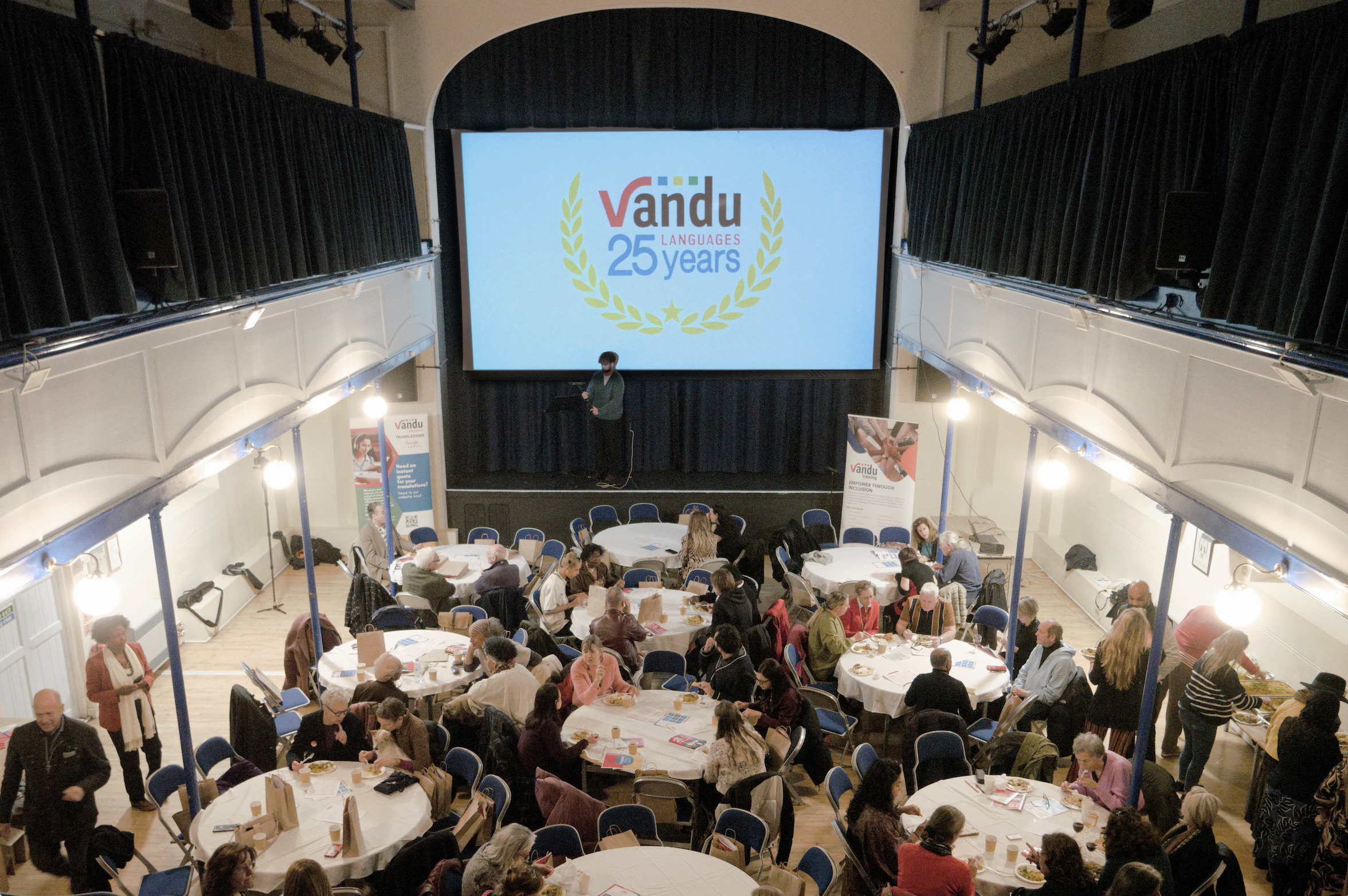
On a November afternoon in 2024, the town of Lewes, East Sussex, welcomed the celebration of Vandu Languages’ 25th Anniversary.
This wasn’t just a celebratory event—it was an important moment to reflect on a journey that began humbly in the late 90s and grew into a lifeline for countless communities across England.
In a room filled with laughter, stories, and connections, Mebrak Ghebreweldi, the visionary founder and director behind Vandu Languages, stood before an audience of colleagues, partners, and supporters.
Mebrak shared her story of starting a business at her kitchen table as a single mother and migrant, capturing the essence of what this organisation stands for: resilience, inclusion, and community spirit.
From a Kitchen Table to Transforming Lives
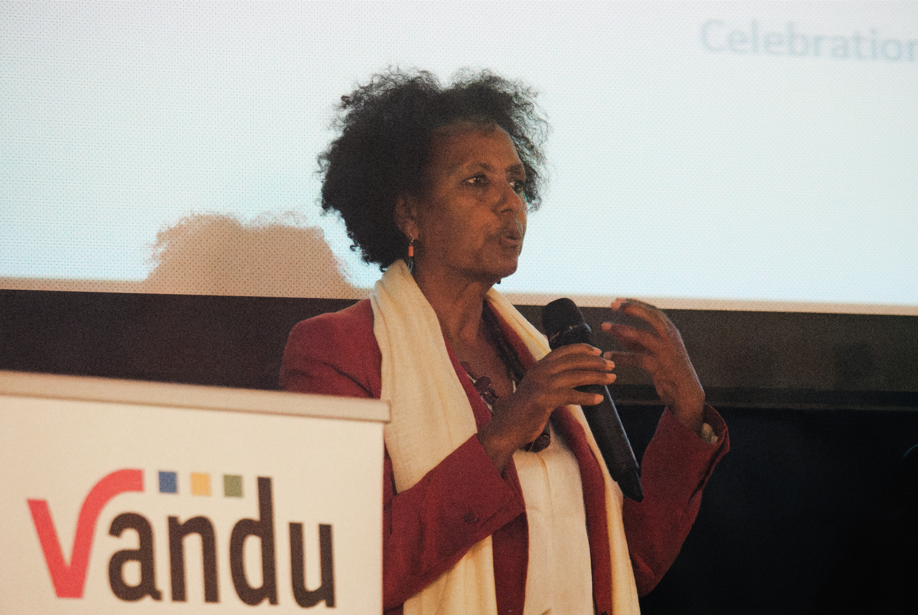
Mebrak was no stranger to challenges. As a former freedom fighter during Eritrea’s War of Independence and later on, a migrant navigating a new life in England as a single mother of two toddlers, she recognised a critical gap in communication for those like her: marginalised individuals struggling to access healthcare, education, and public services due to language barriers.
Driven by her experiences, she founded Vandu Languages, a modest venture that quickly became a beacon of empowerment for marginalised communities across the country.
Over the years, Vandu Languages has grown into a trusted partner for public sector organisations, offering interpreting services, translation services, and health and social care bilingual advocacy. Vandu’s work has enabled people to voice their concerns and access essential services with dignity.
A Celebration of Impact
Hosted by Aaron Clarke, Vandu Languages’ Deputy Director, the company’s 25th Anniversary event featured a variety of guests, including healthcare professionals, local authorities representatives, community organisations leaders, and of course, interpreters, translators and Vandu’s former and current team members.
.jpeg)
Special guest speakers from the public sector spoke about how the evolution of Vandu Languages' offerings has strengthened their ability to serve diverse populations. These speakers brought words of inspiration and anecdotes, as well as important information, updates and data.
Barbara Harris, former Head of Inclusion at Brighton and Sussex University Hospitals (2007 - 2021)
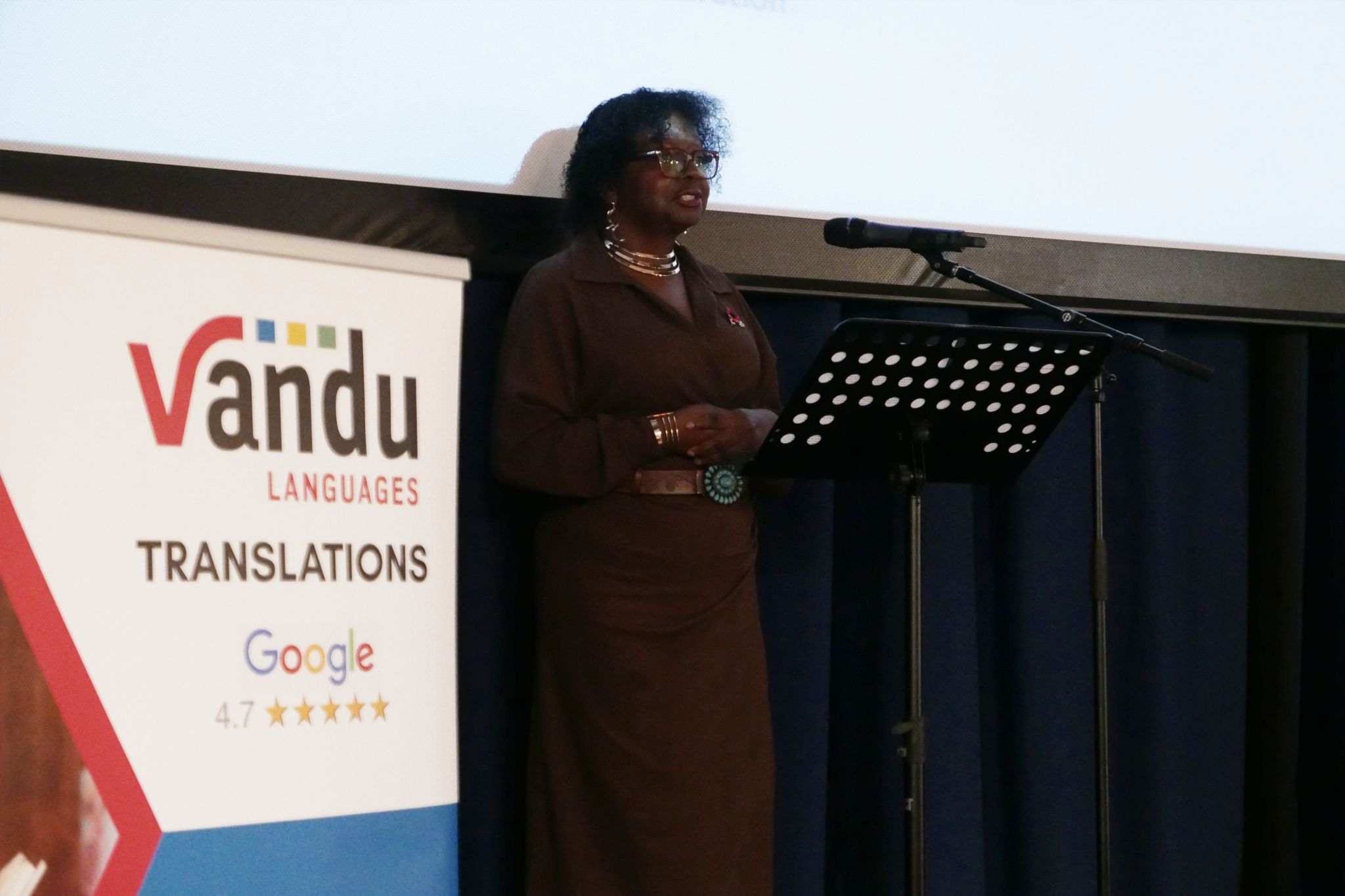
At the event, Barbara Harris recounted the story of how Vandu Languages first became involved with Brighton and Sussex University Hospitals NHS Trust (latterly known as University Hospitals Sussex NHS Foundation Trust) in the late 2000s.
At the time, Barbara had a junior role as an Inclusion Lead at BSUH, and when Mebrak unexpectedly approached her to introduce Vandu Languages, she felt that they were “already meeting the needs” of their patients.
However, Mebrak knew what she had to offer and, as recounted by Barbara herself, “in a style that only Mebrak can deliver”, she asked her whether she was certain that they were delivering the right service to all communities.
After debating this poignant question, Barbara and her team decided that they were going to pilot Vandu Languages' interpreting services at Haywards Heath, West Sussex, where the sourcing for interpreters was much lower than in Brighton.
This is how Vandu Languages started to work with Brighton and Sussex University, and soon enough, interpreters were being used all over their network of local hospitals.
“Working with Vandu was always a pleasure. Not only did they provide the services that we booked, often a short notice, but often if we were let down by other agencies and it really was a matter of needing someone within the next half an hour, or the next hour, it was very, very rarely in those 17 years that Vandu could not provide someone for us”.
Kaveri Sharma, Head of Inclusion and Support Services at East Sussex County Council
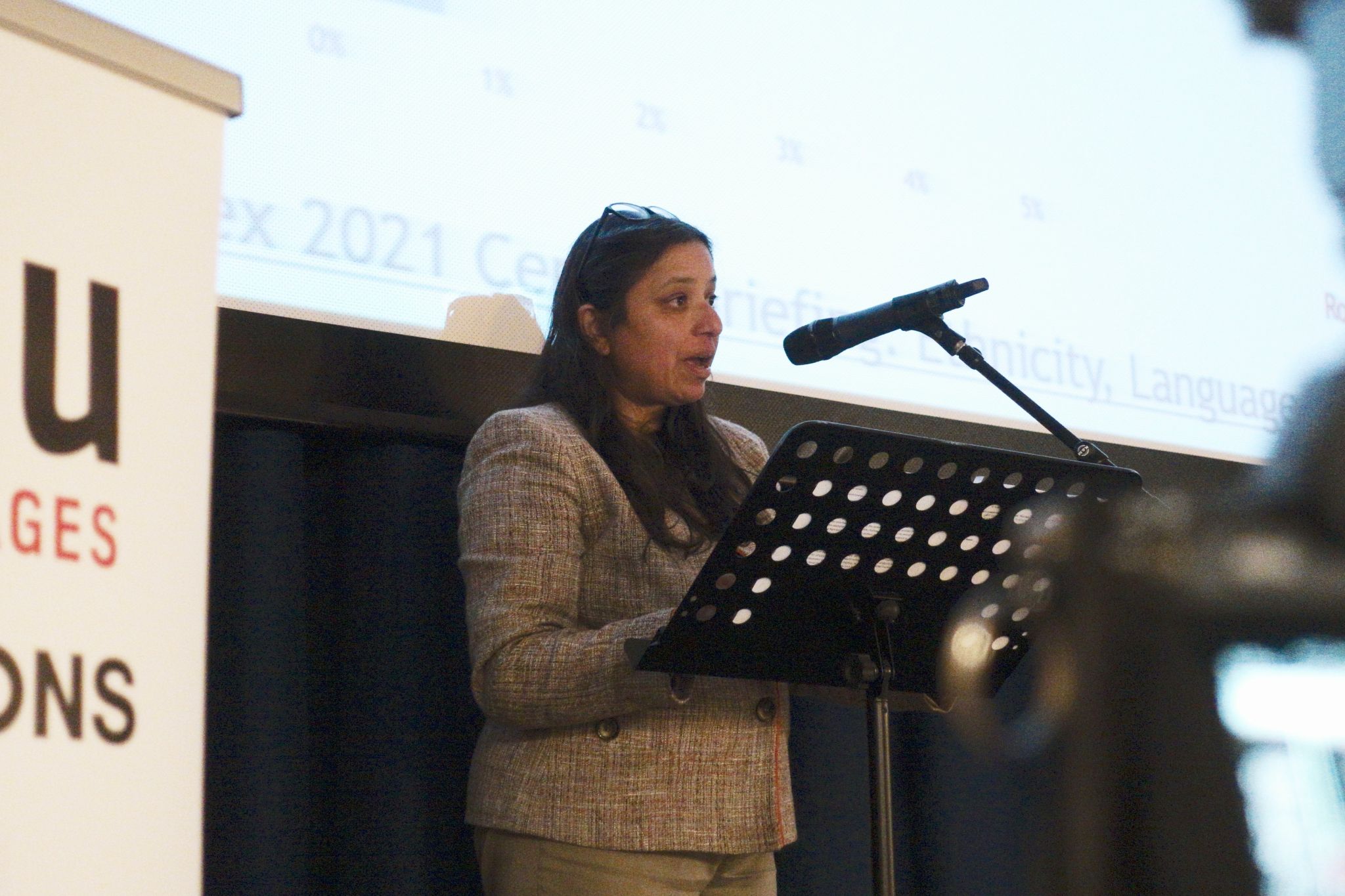
Kaveri Sharma delivered an informative presentation titled “Our approach to working with Migrant Communities”. She provided interesting data about the changing demographics of East Sussex and explained how interpreting and translation services are being used by the council to improve their service delivery to these communities.
“I think it's a moral obligation to make sure that we provide the right level of service and that we are able to provide equitable service to everybody irrespective of their background”.
Kaveri not only spoke about the statutory responsibility of East Sussex County Council, but also about the additional activities that it has been involved in by maintaining close connections with other local authorities (such as District and Borough Councils), the Home Office, and VCSE organisations that East Sussex County Council supports, enables and sometimes funds.
Kaveri also acknowledged the partnership that Vandu has built with East Sussex County Council over more than two decades and thanked the interpreters and translators “who work hard every day” to ensure that the council’s care and support services “remain accessible”.
Ashley Scarff, Director of Joint Commissioning and Integrated Community Team Development for NHS East Sussex
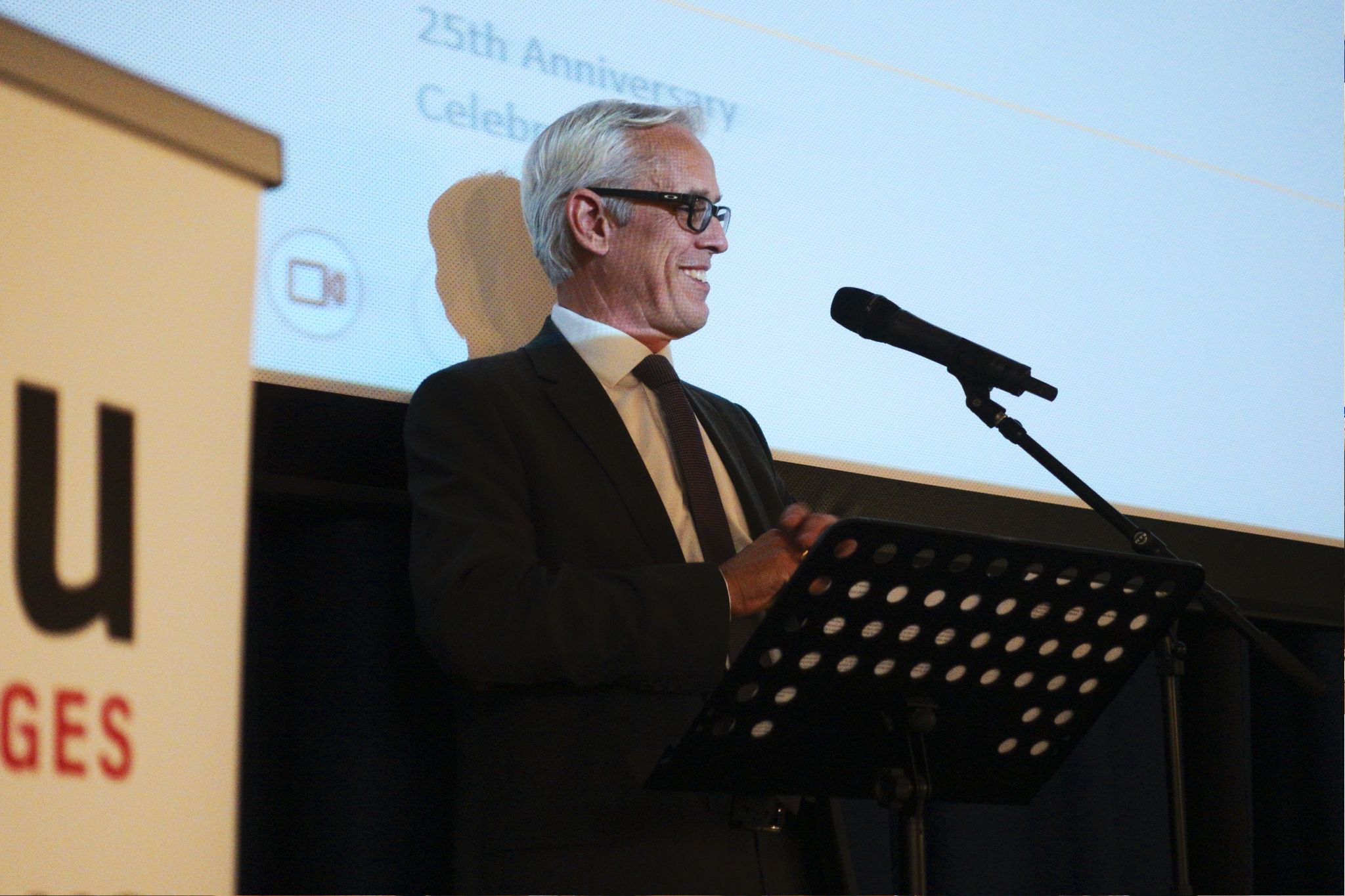
Ashley Scarff’s presentation was particularly interesting, as it was driven by an in-depth exploration of the NHS’s national and regional plans to better serve those facing health inequalities.
The NHS is focusing on preventative care and providing the communities with more information about how to improve their well-being and health outcomes.
“I spent many years working on developing hospitals in very specialist areas, but actually, what fundamentally matters is helping people stay well to start with. So my role now is almost outwards-facing, it’s less about the actual NHS provision of services [and] more about how our services make sense for our local populations”.
However, this approach needs more than simply “broadcasting” information to communities - it’s all about making sure that they fully understand their role when it comes to improving their quality of life, and the role of the healthcare providers in facilitating this process with the resources that the NHS has available.
This is where the work of NHS partners, such as Vandu Languages, comes into play, facilitating the reach to communities who may find it more difficult to engage with the NHS due to a lack of experience with the system or language barriers.
Ash took the opportunity to mention that the NHS is currently working on their 10-Year Health Plan for England, and all people residing in England over the age of 16 are being invited to take part in surveys and other activities to gather their feedback.
More information about how you can get involved is available on their website: Change NHS. Their initial survey takes around 15 minutes to complete, based on the experience of Vandu’s team members.
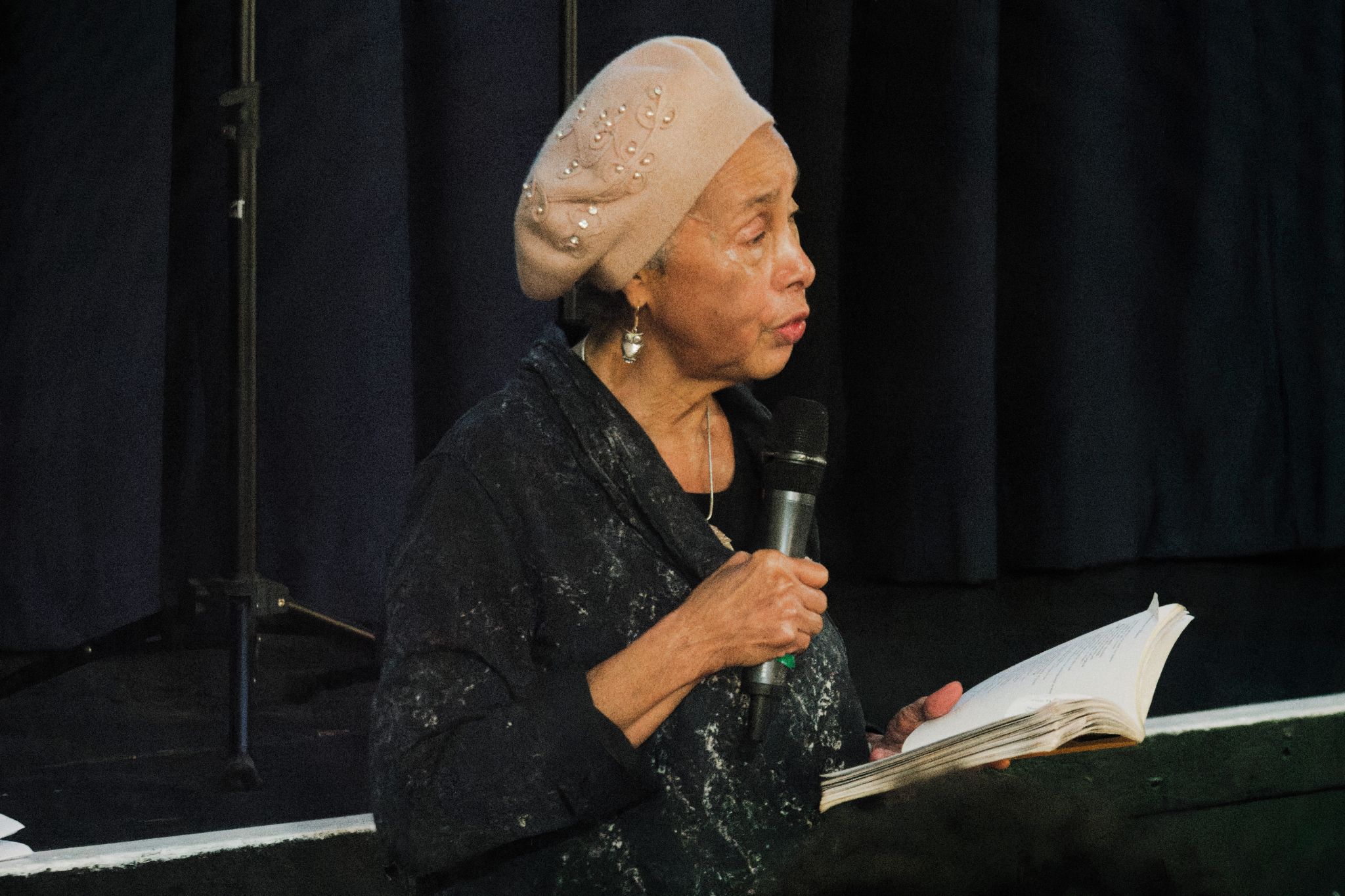
Adding a local cultural touch, Grace Nichols, an award-winning Guyanese poet based in Lewes, mesmerised the audience by reading two of her poems.
Grace's notable work is in GCSE syllabuses across the country and has won several awards, including the Commonwealth Poetry Prize (1983), the Guyana Poetry Prize (1996), and the Queen's Gold Medal for Poetry (2021).
Grace has been a long-term friend of Mebrak and congratulated her for the wonderful work she has done to develop Vandu Languages as an organisation, whilst raising her two sons, the oldest of whom is now the organisation’s Deputy Director, Aaron Clarke.
An Ambient of Celebration and a Special Premiere
Amidst the speeches and presentations, the event also nurtured a sense of togetherness through some activities. Attendees played bingo and tested their knowledge about Vandu Languages and general geography in a quiz. Winners were greeted with cheers and prizes, while everyone received goodie bags with pens, Vandu Languages notebooks, and chocolates.
The evening also featured a premiere of Vandu Languages’ 25th Anniversary video, a moving narrative showcasing Vandu’s journey as recalled by its founder, Mebrak, as well as supporters, customers, language professionals, and former team members who have been part of its development across the years.
From its modest beginnings at Mebrak’s kitchen table to becoming a nationally respected provider of interpreting and translation services, the video captured the resilience, growth, and community impact that define Vandu Languages. It balanced both personal stories and the transformation that the organisation has brought to local communities through its work with public sector organisations.
The video is now publicly available on YouTube as of 31st December 2024, offering a lasting tribute to 25 years of dedication, innovation, and the power of language to bring people together.
Looking Ahead: Vandu Training
As the needs of the public sector evolve, Vandu Languages has historically evolved with them, and after 25 years, the future of Vandu is not the exception. “This is our silver anniversary, and you always have to say what is new”, said Mebrak at the end of Vandu Languages’ 25th Anniversary video.
Vandu Languages’ 25th Anniversary wasn’t just an incredible milestone; it was a promise for the future. With the launch of Vandu Training, the organisation is oriented towards the broadening of its impact, equipping businesses and public institutions to embrace equality, diversity and inclusion (EDI) at every level.
Vandu Training was officially established during the spring season of 2024, but it had been a project that Mebrak, Aaron and several EDI professionals had been working on for the past couple of years.
Amanda Silva, Vandu Languages’ and Vandu Training’s Marketing Coordinator, mentioned in a recent interview:
“It's really interesting that Vandu is seeing how else [it] can help the organisations in the public and private sector apart from the language support; that is still related to the communities [and] that is still going to get people to join the workforce in organisations”.
Now, Vandu Training is looking to expand its reach as a respected EDI training provider for businesses and organisations across the country, offering courses across a broad range of topics, including disability, gender sensitivity, anti-racism, inclusive leadership, cultural competency, general EDI, sexuality and even specialised training for social workers working with unaccompanied asylum-seeking children.
As Mebrak said during her closing remarks at the event:
“For sure, the Vandu of the [next] 25 years is not going to be the same as today, it will be different; but the ethos, the principles will remain, and I will make sure [they] remain”.
Further Information and Resources
- To know more about Vandu Languages, please visit our website at www.vandu.co.uk.
- For booking interpreters, you can email us at info@vandu.co.uk or call us at (+44) 01273473986.
- For requesting translations, please email translations@vandu.co.uk.
- For more information about Vandu Training, please visit our website at www.vandutraining.com. Beyond our training and courses, we also offer EDI consultancy for teams and organisational leaders. You can contact Vandu Training via email at training@vandu.co.uk.
- Use this link to watch the full recap of Vandu Languages’ 25th Anniversary event, which includes all the speeches from Mebrak, Aaron, and all the guest speakers.
